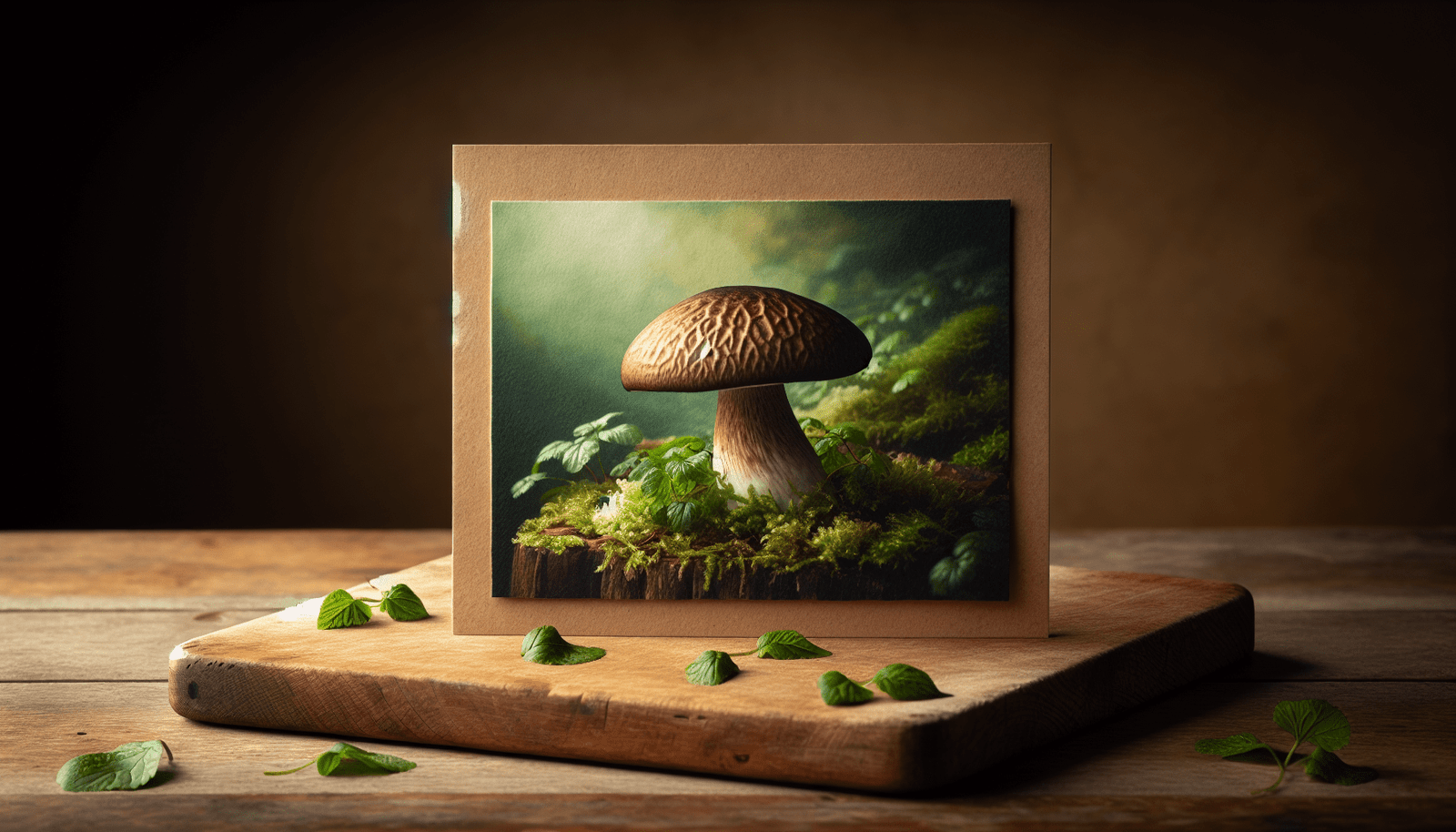Have you ever thought about how mushrooms could transform not just your meals but also your approach to sustainability in cooking? Discussing the culinary potential and sustainability of mushrooms opens up a world of flavors, textures, and practices that promise a healthier and more eco-friendly kitchen. Embracing mushrooms in your cooking not only reduces food waste but also supports a more sustainable way of living.
Understanding the Role of Mushrooms in Sustainable Cooking
Mushrooms are not only culinary gems; they are also champions of sustainability. Their role in sustainable cooking goes beyond providing delightful tastes and textures to encompassing environmentally friendly practices. By integrating mushrooms into your meals, you’re stepping into the world of reducing food waste and maximizing the use of your ingredients.
The Environmental Impact of Mushrooms
Mushrooms have a relatively low environmental footprint compared to animal-based foods. Their cultivation requires less land and water, and they grow quickly. This makes them a fantastic alternative for those looking to decrease the environmental impact of their eating habits. By incorporating mushrooms into your meals, you’re directly contributing to reducing the demand for more resource-intensive foods.
The Nutritional Benefits of Mushrooms
Nutritionally, mushrooms are powerhouses. They are packed with essential vitamins and minerals such as vitamin D, B-vitamins, and selenium, as well as being an excellent source of fiber and protein. This makes them an essential component in a balanced diet, particularly for those following plant-based or protein-conscious regimes.
Exploring Different Types of Mushrooms
The variety of mushrooms available can be both exciting and overwhelming. Each type offers distinct flavors and textures, suited for different kinds of dishes. Here’s a closer look at some of the popular varieties:
Common Varieties and Their Uses
| Mushroom Type | Flavor Profile | Culinary Uses |
|---|---|---|
| Button | Mild and versatile | Soups, salads, and pizza toppings |
| Portobello | Rich and meaty | Grilled as burger alternatives, stuffed dishes |
| Shiitake | Earthy and umami-packed | Stir-fries, risotto, and broths |
| Oyster | Delicate with a seafood-like taste | Sauces, soups, and stews |
| Morel | Nutty and woodsy | Gourmet dishes, often sautéed or added to sauces |
| Truffle | Musky and pungent | Shaved over pasta, added to oils or sauces for flavoring |
Each of these mushrooms can bring unique characteristics to your dishes, encouraging you to experiment in the kitchen and discover new favorites.

Cooking Techniques to Maximize Flavor and Sustainably Use Mushrooms
Cooking with mushrooms is an art and learning specific techniques can elevate your dishes. Here are some methods to enhance their flavors while making the most of your ingredients.
Sautéing for Intense Flavor
Sautéing mushrooms develops their rich, deep flavors. Start by cleaning them gently with a brush or damp cloth to avoid soaking them. Use a bit of oil or butter, and season simply with salt and pepper. Consider adding garlic or herbs to complement the earthy taste of the mushrooms.
Roasting for Rich Texture
Roasting mushrooms concentrates their flavors and gives them a satisfying texture. Spread them on a baking sheet, drizzle with oil, and roast at a high temperature. This method is excellent for creating side dishes or toppings for salads and grain bowls.
Fermentation for Long-term Preservation
Fermenting mushrooms can preserve them while adding rich flavors to your dishes. Mix mushrooms with salt and your choice of spices, then let them sit in a jar to ferment. Use these tangy, umami-rich mushrooms as condiments or salad toppings.
Reducing Food Waste with Mushroom-Based Dishes
Mushrooms can be a key ingredient in Minimizing food waste by making the most out of your existing kitchen resources.
Utilizing Mushroom Trimmings
Don’t discard mushroom stems or trimmings! They can be used to make flavorful stocks and broths. Simmer them with other vegetable scraps for a versatile broth to use in soups, sauces, or as a cooking liquid for grains.
Creating Versatile Mushroom Broths
A rich mushroom broth serves as a fantastic base for many dishes. Boil mushroom pieces with onions, garlic, and herbs for a nutrient-rich broth. It can enhance risottos, stews, or work as a warming soup on its own.
Innovating with Mushroom Scraps
Use the odds and ends of mushrooms creatively. Blend them into paste for dips, or stir them into sauces to add extra layers of flavor without wasting any part of the mushroom.

Incorporating Mushrooms in Creative and Unexpected Ways
Beyond traditional cooking, mushrooms can be the star in innovative recipes that add a surprise element to your meals. This creativity is key to sustainable cooking and exploring new culinary territories.
Mushroom-based Desserts
Consider creating desserts featuring mushrooms. Their earthy, umami taste pairs surprisingly well with sweet ingredients. Try including mushrooms in your next brownie or cookie recipe for a unique twist!
Adding Mushrooms to Beverages
Mushrooms like chaga or reishi can be used in drinks for their health benefits. Brew them into teas or even try a mushroom powder in your coffee to add nutrients without taking away from the traditional taste.
International Mushroom Dishes
Explore global cuisine reimagined with mushrooms. Whether it’s adding shiitakes to a classic Italian pasta, or using oyster mushrooms in a Mexican taco filling, bringing a global twist to mushroom dishes can inspire culinary adventures.
Health Benefits of Incorporating Medicinal Mushrooms
Knowledge of the health benefits of mushrooms keeps growing, with many varieties known for their medicinal properties. Incorporating these into your diet can enhance your wellbeing and support a sustainable lifestyle.
Boosting Your Immune System
Mushrooms like turkey tail and maitake have been studied for their potential immune-boosting properties. Adding these mushrooms into soups or stir-fries is an easy way to potentially enhance your body’s natural defenses.
Supporting Bone Health
Mushrooms are one of the few natural sources of vitamin D, essential for bone health. Eating a variety of mushrooms ensures you receive this important nutrient, especially during winter months when sunlight exposure is limited.
Enhancing Digestive Health
Rich in fiber, mushrooms can support digestive health by promoting good gut bacteria. Regularly eating mushrooms, especially in their fermented forms, can contribute positively to your digestive system.
Foraging and Cultivating Your Own Mushrooms
Foraging or growing your own mushrooms can foster a deeper connection with sustainable food practices and reduce reliance on store-bought produce.
Tips and Tricks for Safe Foraging
Foraging is rewarding but requires knowledge and care. Always forage with a guide or identification book to ensure you collect safe-to-eat mushrooms. Familiarize yourself with local laws regarding mushroom foraging to preserve natural ecosystems.
Starting a Home Mushroom Garden
Growing mushrooms at home is more manageable than you might think. You can easily begin with home-growing kits available for several mushroom varieties. Ensure they have the proper environment, such as a dark, damp area, to cultivate success.
Interactive Engagement within the Mushroom Community
Cooking should be a shared experience, and engaging with a community of mushroom enthusiasts can offer support, inspiration, and new ideas.
Sharing Recipes and Tips
Consider joining forums or social media groups where people exchange recipes and tips. Sharing your experiences and learning from others can broaden your mushroom-cooking repertoire.
Participating in Community Foraging Events
Many communities organize foraging events or mycological society gatherings. Participating in these can be a fun way to learn about mushrooms, enjoy the outdoors, and meet others interested in sustainable cooking.
Conclusion: Embracing Mushrooms for a Sustainable Cooking Journey
Embracing mushrooms in your culinary practices is more than a way to reduce food waste; it’s about engaging actively with sustainability and enjoying the multifaceted benefits of these remarkable fungi. Whether through the nutritional enhancements they offer, the unique culinary possibilities they provide, or the sustainable practices they promote, mushrooms are a fantastic addition to your kitchen repertoire.
